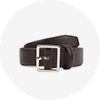- No Products In The Cart
- start shopping
Understanding Forex Trading Brokers A Comprehensive Guide 1763771985

Understanding Forex Trading Brokers: A Comprehensive Guide
In the vast world of currency trading, forex trading brokers Global Trading Brokers play a crucial role in connecting traders to the foreign exchange market. Forex trading, often seen as a tool for investment and profit-making, heavily relies on the services provided by brokers. However, navigating through the diverse options available can be overwhelming, especially for beginners. This article aims to demystify Forex trading brokers, detailing their types, functions, how to choose one, and key factors to consider.
What Is a Forex Trading Broker?
A Forex trading broker is a financial institution that provides access to the foreign exchange market. They act as intermediaries between retail traders and the global currency markets. By offering trading platforms, brokers facilitate the buying and selling of currency pairs at competitive rates. These brokers come in various types, catering to different trader needs based on experience, trading strategy, and financial objectives.
Types of Forex Brokers
Forex brokers can be categorized into several types based on their business model and trading conditions:
- Market Makers: Market makers are brokers who create their own market for currency pairs. They quote both buy and sell prices, making money through the spread. This type of broker provides liquidity and is beneficial for traders seeking to execute trades quickly.
- ECN Brokers: Electronic Communication Network (ECN) brokers connect traders directly to the interbank market. They offer tighter spreads and faster execution speeds. ECN brokers typically charge a commission on trades, making them suitable for scalpers and algorithmic traders.
- STP Brokers: Straight Through Processing (STP) brokers send orders directly to liquidity providers without any intervention. They can offer a mix of fixed and floating spreads and are popular among traders who value transparency and speed.
- DMA Brokers: Direct Market Access (DMA) brokers allow traders to access the market without any intervention from the broker. This setup provides the best pricing and execution speed, cater to professional and institutional traders.
How to Choose the Right Forex Broker
Selecting the appropriate Forex broker can significantly impact your trading success. Here are several criteria that traders should consider when choosing a broker:
Regulation and Safety
Ensure your broker is regulated by a recognized financial authority, such as the Financial Conduct Authority (FCA) in the UK or the Securities and Exchange Commission (SEC) in the US. Regulation ensures that the broker adheres to strict operational standards and protects clients’ funds.
Trading Platform
The trading platform is the software through which traders execute their trades. Popular platforms like MetaTrader 4 or 5 offer user-friendly interfaces, comprehensive charts, and analysis tools. Make sure your broker offers a platform that fits your trading style and preferences.
Fees and Commissions
Forex brokers charge fees through spreads, commissions, or both. Compare the fee structures among different brokers to find one that aligns with your trading style, whether you’re a scalper or a long-term investor.
Currency Pairs Offered
Confirm that the broker provides access to the currency pairs you wish to trade. Some brokers may specialize in specific pairs, which may not be suitable for your trading strategy.

Leverage Options
Leverage allows traders to control larger positions with a relatively small amount of capital. While high leverage can amplify profits, it also increases the level of risk. Choose a broker that offers a leverage level that matches your risk tolerance.
Customer Support
Reliable customer support is crucial, especially for new traders. Test the broker’s customer service by contacting them with questions or concerns to assess their responsiveness and helpfulness.
Understanding the Role of Forex Brokers in Trading Strategies
Forex brokers not only facilitate transactions but also provide resources that traders can utilize to develop and implement trading strategies. Many brokers offer educational materials, analysis tools, and market insights that can enhance a trader’s understanding of the market.
Research and Analysis Tools
Having access to market research, technical analysis, and economic calendars can significantly improve a trader’s decision-making process. Brokers with in-depth resources can help traders better understand market movements and historical price trends.
Trade Execution Quality
Execution speed and quality can greatly affect a trader’s profitability. Ensure that the broker offers fast and reliable trade execution to take full advantage of market opportunities.
Common Mistakes When Choosing a Forex Broker
Even experienced traders can fall victim to common mistakes when selecting a Forex broker. Here are some pitfalls to avoid:
- Ignoring Regulation: Always verify the regulatory status of a broker before opening an account. Trading with unregulated brokers increases the risk of fraud.
- Overlooking Fees: Some brokers have hidden fees that can eat into profits. Be sure to read the fine print and understand all associated costs.
- Falling for Promises of Quick Wealth: Be wary of brokers that promise unrealistic returns on investment. Successful trading requires strategy, discipline, and effort.
Conclusion
Choosing the right Forex broker is a critical decision that can significantly impact your trading experience and success. By understanding the different types of brokers, evaluating their offerings, and considering various factors, you can confidently select a broker that aligns with your trading goals. As the trading landscape evolves, always stay informed and adapt to changes to maximize your trading potential.
In conclusion, whether you are a beginner or an experienced trader, taking the time to research and choose the right Forex trading broker is invaluable. With the right broker by your side, you’ll have access to the tools, resources, and support necessary for successful trading in the dynamic world of Forex.

